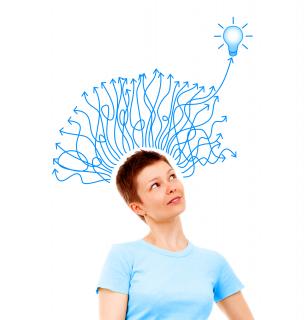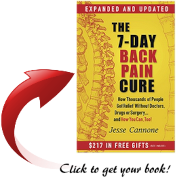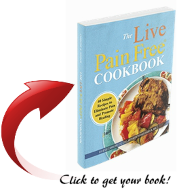Dr. Beth Darnall is a Pain Psychologist at the Stanford University Pain Management Center, and she was one of the presenters on the Back Pain Education Day. She discussed the brain and pain connection. Out of all the topics covered, I thought her discussion was most interesting. To be honest, I never heard of the term “Pain Psychologist”. But to my surprise, it is a psychological specialty. To learn more about it, you can click on this link, What Is a Pain Psychologist. Dr. Darnall’s presentation topic was titled Pain Psychology: Opening The Medicine Box In The Mind.

The Brain And Back Pain Connection
When I started this website about 3 years ago, my goal was to present useful and practical information about pain, and how to find relief, such as from low back pain. One of my early blog post was titled 5 Qualities Common In Pain Free People, as I have always been intrigued about the healing power of our brain (mind), and how it can affect pain. Fast forward a few years, and now a recent Back Pain seminar hosted by Stanford University presents documented research on how the brain relates to pain.
Pain or “harm alarm”, as Dr. Darnall refers to it, can be thought of as a sensory experience. As this sensory experience shoots up to the brain, the brain in turn informs us of this stimuli … pain … ouch! And in the same line, pain impacts our emotions, and our emotions impacts pain.
I Think (Back Pain) Therefore I Am (In Pain)
Okay, so it’s a hacked-up phrase by the famous French philosopher and mathematician Descartes, but current research has found that how you respond to physical pain, such as back pain, is a predictor of how that pain will affect you. Depression usually occurs with chronic pain. And when you are down due to the pain and have a poor self image, it was found that such individuals experienced more pain after surgery, and required to be on opioid-based medications for a longer duration. And long-term use of opioid-based medications has negative effects on the health of our bodies.
One of the detrimental things you can do is have this feeling of “righteous indignation” toward your pain. For example, let’s say that your current back pain condition was the result of a car accident caused by another party. And every time you feel the back pain, you start to harbor feelings of injustice as you tell yourself that you are the victim, and that your back pain was caused by the other person’s wreckless driving. This constant occuring feeling of “righteous indignation” will become a stumbling block to achieving pain relief since you will have trouble focusing on anything else other than the pain. This in turn amplifies the pain, you lose focus on what you can do to manage it, and ultimately, you feel helpless about the experience of pain. Not dealing with this will have serious, negative consequences.
Back Pain Catastrophizing
When you are pain catastrophizing, you are placing these feelings of “righteous indignation” on the experience of pain, constantly thinking about how bad it is rather than on solutions to make it better, and then feeling hopeless about it. According to Dr. Darnall, this “primes the nervous system for pain”, and sets the stage for chronic pain. The results of pain catastrophizing can result in feelings of tension, even at rest, and also reduces the effectiveness of pain relief treatments.
How To Respond When Back Pain Strikes
I guess the saying “Don’t live in the past” is a pretty deep statement with which we should heed, especially when it comes to dealing with our back pain or pain, in general. So what do we need to do when that good ‘ole “harm alarm” strikes? Dr. Darnall outlined the following:
- Identify the triggers and catastrophizing thoughts
- Shift your focus on positive thoughts
- Control your negative thoughts, be non-judgmental (mindful) and counter helplessness
- Learn to calm down
And ultimately, you want to unlock your “mind’s medicine box” …
- Learn Mindfulness Based Stress-Reduction (MBSR)
- Learn to meditate
- Work with a pain psychologist or health psychologist
- Exercise regularly
- Nurture positive, supportive relationships
- Learn to nurture yourself; have compassion for yourself

That’s the info I got from Dr. Darnall’s presentation. If you haven’t seen it yet, I highly recommend that you do. You can click on this link to view the presentation ==> Back Pain Education Day. She validated the brain-pain connection with supporting research studies, and also presented interesting terms and useful information to deal with your back pain. A healthy, positive mindset is an integral component of a multi-pronged approach to dealing with back pain. And I strongly agree that it’s something you need to cultivate in order to achieve back pain relief.




